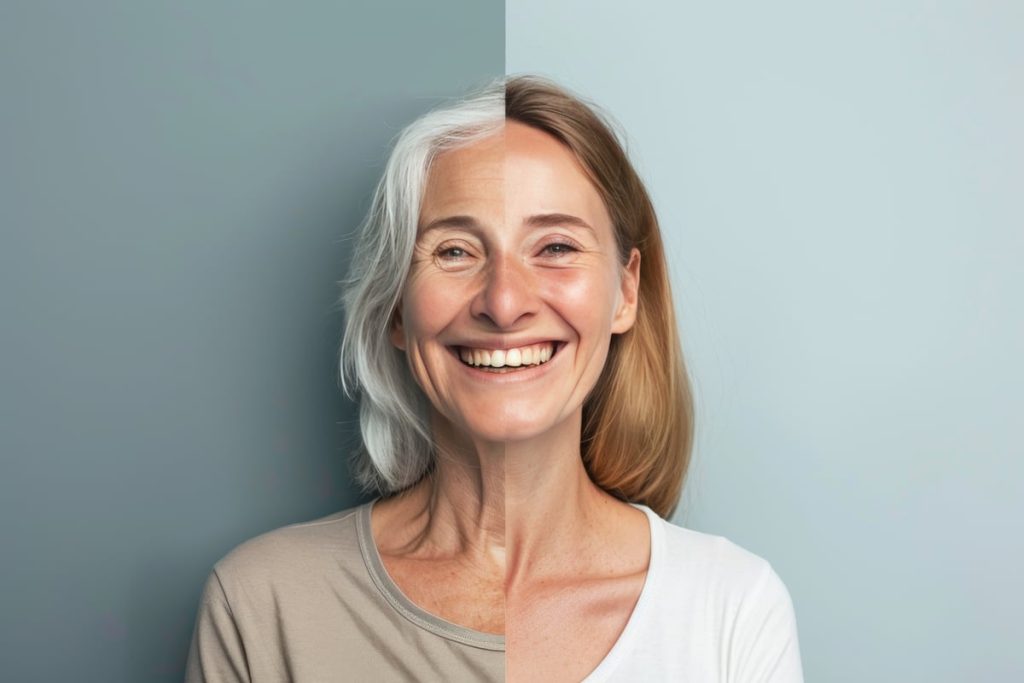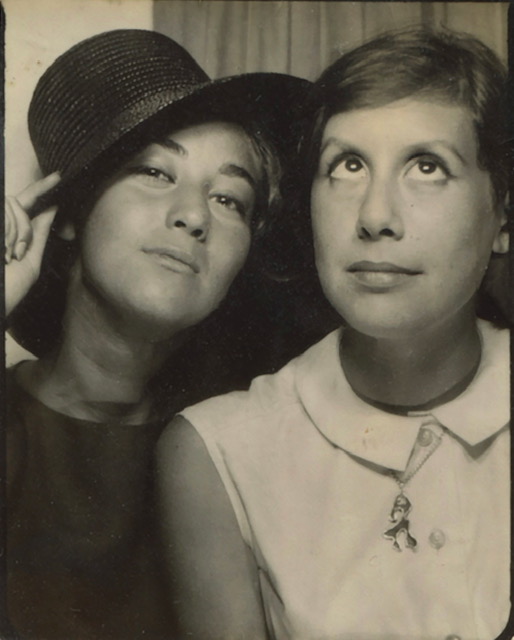Cindy Abrams never married or had children, a fate forged partly by chance and partly by choice. The Connecticut woman once dated a man she thought could be The One but chucked him when her dad objected because he wasn’t Jewish. Subsequent romances were fleeting, infrequent, unimportant. She prioritized her profession above all else, climbing high in fields of finance and earning enough to easily indulge her love of travel and sports.
Now semi-retired, Abrams has jetted as far as Thailand and South Africa to sate her wanderlust and spends much of her spare time skiing, hiking or golfing.
It’s a good plan … “as long as your body cooperates,” Abrams said.
But lately, her 61-year-old body hasn’t been cooperating. When Abrams gets sick, she has no spouse to chauffeur her to doctor appointments or to assist her at home. She has no son or daughter to cook during her convalescence or to ensure that her bills get paid. As she pondered a planned shoulder surgery, Abrams ticked off the hours of distance between herself and her extended family. Her local friends, mostly members of her ski club, are abundant but also aging and preoccupied with their own needs.
“I struggle, just because of my personality—I’m an introvert,” Abrams said. “I struggle with creating enough relationships to have people I can count on when I need some help.”
The closeness of many generations living in the … same community is really disappearing. So families are losing the ability to take care of each other.
— Carol Goldberg, PhD, ABPP
Years ago, families were the go-to caregivers for people as they aged. But while most of America’s older people can still count on being cared for by spouses or adult children if the need arises, more and more are like Abrams, reaching their retirement years single and childless, and starting to get concerned about what comes next.
Many still relish the freedoms and benefits of a single, childless lifestyle. Yet that absence of familial support can become a problem if older adults discover they need help managing their health care, finances and physical chores. They also might miss more intangible things, like love. A paid caregiver or charitable neighbor can carry your groceries or take you to a medical appointment but might not fulfill your emotional needs.
What’s Driving the Trend?
Rising divorce rates and the proportion of the population that never married are partly behind the trend. Census statistics show that 35 percent of 50- to 54-year-olds were single in 2010, up from almost 29 percent in 2000. Among 55- to 64-year-olds, 33 percent were single in 2010, compared to 30 percent in 2000.
Further, rising longevity plays a role: average life expectancy in the United States now is 78.5 years, compared to 76.9 in 2000, according to the Centers for Disease Control and Prevention.
Women tend to outlive men, especially as they approach extreme old age. Eighty-five percent of people who live past 100 are women. Women also are less likely than men to remarry, according to census data. Therefore, more women than men tend to find themselves alone during their retirement years.
“People are living longer, so they’re outliving their spouses and contemporaries. Sometimes they might be alone because they get divorced or widowed. Or their children move far away or lose touch with them,” said Carol Goldberg, PhD, ABPP, a New York-based clinical psychologist with a postdoctorate in geriatrics.
“The closeness of many generations living in the same house or same community is really disappearing. So families are losing the ability to take care of each other. This is a very big issue,” Goldberg added.
Almost one in five American women today ends her childbearing years without having borne a child.
Evelyn Fitzwater, DSN, RN, CS, associate director of the Center for Aging with Dignity at the University of Cincinnati’s College of Nursing, agreed. “It’s kind of a myth that just because you have kids that they’re going to be there for you. It’s a transient world, so your children can live all over the world. Or your children might not be as handy or available as you’d like, because they have their own challenges or commitments.”
Childlessness has become a major issue today, beginning with the boomer generation. The reasons vary. Women have more educational and career opportunities than ever before, prompting some to choose profession over parenthood. Perhaps because of those opportunities, more women are delaying marriage, which further increases their likelihood of remaining childless. And birth control is better and more widely available than in decades past. Almost one in five American women today ends her childbearing years without having borne a child, compared with one in 10 in the 1970s, according to the Pew Research Center. In addition, gays and lesbians, marginalized in past decades, have become a more recognized population, and many choose childlessness.
Being single and childless can, in some ways, position a person better for the retirement years, according to Ingrid Arnet Connidis, author of Family Ties & Aging (2009).
While they don’t have the benefit of two incomes or shared expenses, childless women tend to be better educated and are more likely to be employed than mothers, positioning themselves to be better off financially as they face retirement, Connidis found. They also tend to be more self-sufficient, she said.
Finding ‘Family’ Elsewhere
Abrams expects she’ll end up in a nursing home, like both her parents did. She has lived in her house for 34 years and aims to move into a retirement community by age 70.
Older people without children typically have higher rates of living in assisted living or long-term-care facilities, experts say.
“I’ll go from independent living to assisted living to the nursing home to the mortuary,” Abrams said. “I’m not too crazy about the nursing home part, but I don’t want to be by myself, I don’t want to cook for myself, and it’ll be nice having some company.”
But many older folks without family support are getting more creative to ensure caregiving and forestall institutionalization.
Some people create their own social networks.
“Friends sometimes become substitute family. Next of kin becomes someone who is not related by blood. People are redefining what it means to be a family,” Goldberg said.
I’m haunted by the knowledge that there is no one who will care about me in the deepest and most loving sense of the word at the end of my life.
–Jane Gross
Some older folks find what they need by creating communities, or “villages,” with people who have similar needs and interests. In Princeton, NJ, for example, a “Community Without Walls” formed in 1992. Members meet monthly and get together to go out for dinner or to indulge other interests. Those who need help with chores or whatnot can also find it there.
Another such group is the Transition Network. A conversation between two 50-something women in 1999 led them to create the New York-based group in which women gather for peer conversations and activities. It now has 12 chapters scattered across the country.
While being single and childless isn’t a prerequisite for joining, many members have no spouses or children, said Betsy Werley, the network’s executive director. Realizing their shared challenge of being alone as they navigated health and other issues of old age, Transition Network members in 2008 officially launched a “Caring Collaborative” program that ensures they will get the practical support they lack without relatives around to help.
When Shoya Zichy fell in the street and dislocated her elbow, the “65-plus” New Yorker called the collaborative, and a member hurried to accompany her to the hospital.
“I was in absolute pain, and she sat in the ER with me for 10 hours. I’d only met her briefly for 10 minutes before that day. But she stayed with me throughout, until she dropped me off at my apartment at 3 am. She really helped me keep my mind off the pain. Obviously, we became really good friends,” said Zichy, an author and career coach who has no spouse or children.
Other such initiatives have grown from the concerns of specific demographic groups. In New York City, for example, the nation’s first full-time center for older gay, bisexual and transgender residents opened in January 2012. The center has similar offerings to what’s found at traditional senior centers, but visitors to the SAGE Center (for Services & Advocacy for GLBT Elders) won’t find the discrimination or sideways looks they’ve experienced elsewhere.
Making Emotional Connections
But while paid and volunteer help abounds, money can’t buy love, as the old adage goes.
“I’m haunted by the knowledge that there is no one who will care about me in the deepest and most loving sense of the word at the end of my life. No one who will advocate for me, not simply for adequate care but for the small and arguably inessential things that can make life worth living even in compromised health,” wrote New York Times blogger Jane Gross—who is single and childless—in 2008.
Peter Cziffra, a retired librarian from Princeton, NJ, is in great health now, but he dreads the day he gets what he calls “the .357 Magnum disease,” or any ailment so incapacitating that death might be preferable. Lisa, his wife of 46 years, died in October 2011, and they never had children, so he’s facing his final years alone.
“At 81, I’m not about to remarry,” Cziffra said. “I have a lawyer who will see that my living will is enforced, but she is a stranger, really. She happens to be a very nice woman, but she’s not going to be overly concerned with my welfare if something happens to me; it’s not like a husband or wife sitting in the hospital room, coming in and checking on you every day.”
There are strategies that single, childless folks can use to build relationships during their retirement years to alleviate isolation and inconveniences, experts say.
“First, I believe in work,” said Goldberg, the New York psychologist. “If they can still work, they’re healthy enough and they have the skills, they should absolutely work, because work gives one (a chance to socialize) and a sense of productivity and self-esteem—and also money.”
Further, Goldberg advocates “making multigenerational connections,” rather than spending all your time with people in your age group. She recommends befriending young neighbors, volunteering to tutor children or offering to babysit for young families.
“It’s a mutually beneficial thing. You could give them advice and help them out with things like child care, and they could help you out with shoveling snow and carrying packages and the sort of thing that becomes harder as you get older,” Goldberg said.
Cziffra is following that advice. He’s become friends with a younger couple in the neighborhood and he belongs to Princeton’s Community Without Walls. He exercises diligently, both body and mind, passionately reading the New York Times and his extensive collection of books. He expects that he’ll eventually sell his house and move to assisted living or a nursing home, but he’s doing as much as he can to postpone that for as long as possible.
“When my wife died, (a friend) told me: ‘Life will never be great again. But it can be good again,’” Cziffra said. “And I really believe that.”



